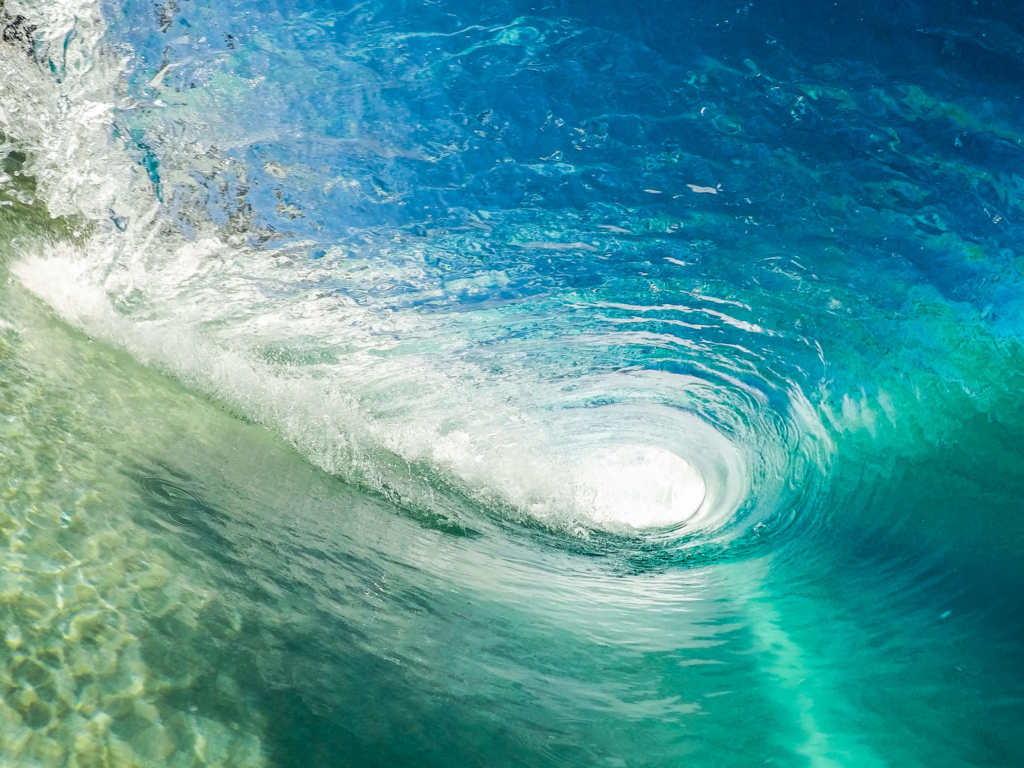I know and love that smell- the one when I’m approaching the ocean. There’s no time to check-in. The water is 500 metres away, I can feel it. Now it’s 200 metres away and I can smell it. 100 and I can hear it. My feet have acquired a character of their own. I’m running towards it, with my bags, to do…WHAT? I can’t surf or dive…yet. But it really feels like the ocean is calling me, and I must go.

What is it about the water that we become feverishly possessed like madmen?
For a very long time, I used to think that it was just me and maybe a handful of people who felt this way. But this seems equally applicable to most people who have spent quality time at the beach. And this love started way before Instagram posts started cropping up with fancy pictures and quotes. Now the reason we love the ocean seems to have a deep scientific and historical connection.
WATER- THE LIFE GIVING FORCE
Author Arthur C. Clarke once said -“How inappropriate to call this planet Earth when it is quite clearly Ocean.”
Ocean plankton contribute to more than 50
percent of our planet’s oxygen. The earth is more than 70 percent water. Water is the primary ingredient for survival, which is why NASA abides by the ‘follow the water’ rule when looking for alternative life forms.
Two-thirds of the global economy has activities that involve water in some form. We use water for simple everyday activities. Over a billion people have livelihoods directly dependent on water.
EARLY HUMANS- AQUATIC APES?

Our relation with water is deeper than economics. There is a controversial theory- that early humans were ‘aquatic apes’. Many, including David Attenborough, have supported this.
The theory says that early man lived near (sometimes in) food-rich water bodies. This is why we learnt to walk upright, to keep our heads above water. We lack fur, have big brains and subcutaneous fat layers, common traits amongst aquatic animals, but different from other mammals.
The large sinuses we have means larger cavities in our head, which contributed to buoyancy. Also, without Omega 3 rich fatty acids found in seaweeds, we couldn’t have developed the large sized brains we have.
Our amphibian existence was also to escape predators. Coastal dwellers managed to see enemies or hunters approaching from a distance. Instead of moving across land, humans simply learnt to build simple structures to move across water bodies, giving birth to early forms of kayaking.
A SPIRITUAL CONNECT

Surfing, one of the earliest adventures known to mankind, was started by natives of Hawaii. The activity has remained an important part of their culture. What started from there, seized the world- to passionate surfers, it is a way of life, almost a religion. Many feel a spiritual, meditative tie with the ocean and the sport.
This bond extends to the humble swimming pool. The instant I’m submerged under water, I’ve left the mundane behind and entered a blue-green world, where fears and time don’t exist here. My breath seems to go on forever. There is a heightened sense of awareness- of myself and my movements.
WATER BABIES

Remember the iconic album art of Nirvana’s ‘Nevermind’? As infants, we can hold our breath underwater for more than 40 seconds. We naturally start breast-stroking. This ability only leaves us when we learn to walk. Many parents have a strange format of swimming classes- they dunk their kids in the pool. The infants, who can’t even walk, manage to swim up towards the surface.
Human foetuses display ‘gill slit’ structures in early stages. Not to forget- the first nine months are spent swimming in the mother’s womb. Newborns are about 78 percent water, which gradually drops to about 60 percent, but our brain still remains 80 percent water.
THE STRANGE ACT OF FREEDIVING

Freediving is a sport that has caused much confusion in the scientific community. We seem to share the strange traits of marine animals like dolphins and whales, that can dive to great depths without being crushed by the pressure.
Something strange happens the moment we put our face underwater. The heart rate lowers by almost 25 percent, blood starts rushing into the core. Our brain waves soften. These reflexes heighten as we dive deeper. The equivalent pressure on land would prove fatal.
Some freedivers have reported heart rates as low as 7 bpm, 3 times lower than that of a coma patient. Physiologists claim that a heart beating at this rate can’t support consciousness, yet, in the ocean, we seem to do just fine. In the 17th century, sailors reported seeing divers, primarily fishers and hunters stay underwater for up to 15 minutes!
EMOTIONAL TIES

Experiments have shown that approaching or being near the ocean triggers responses in the part of the brain that processes memories. And this has occurred even in subjects that have never been near the ocean before! Water inspires us, it intimidates us. It creates peace and awe. When humans feel, taste, hear or smell the ocean, some instinctual responses kick in, different from our rational and cognitive responses.
People’s eyes turn sparkly when they describe their first encounter with the water. Most have clear memories of every time they dived or sat at the beach- alone or with a loved one. While the reason for our emotional attachment is not completely discovered, more and more neuroscientists believing that our emotions actually drive most of our actions.
This emotional bond might be contributing to our ocean
addiction.
Perhaps this is why we run towards the ocean.
Free and light.
Every time.
Convinced you love the ocean too? Feel like experiencing the ocean today? Check out some of our water adventures HERE.
SUBSCRIBE NOW to stay updated on all things adventure!




